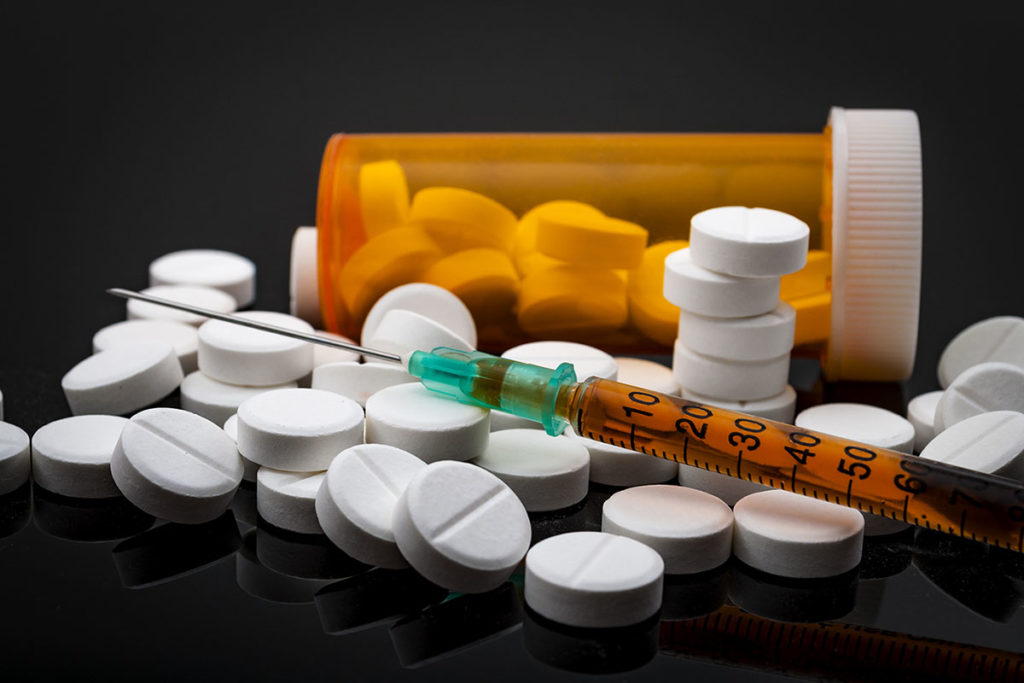Opiates are central nervous system depressants that slow down your breathing and heart rate, making them especially dangerous to mix with other depressants. Because the opiate overdose timeline is short, experiencing symptoms of an opiate overdose requires immediate medical intervention. The rise in opiate abuse has led to overdoses becoming the leading cause of death among Americans under the age of 50. Rampant prescription opiate abuse over the past 20 years has resulted in heroin use increasing, as heroin is a cheaper and more potent alternative. Illicit heroin supplies cut with dangerous additives like fentanyl have increased the number of opiate overdoses nationwide, while prescription opiate addiction continues to contribute to more than 14,000 deaths annually.
What are Opiates?
Opiates are derived from opium and create euphoric, calming, and relaxing emotions. Some of the most widely abused opiates include:
- Heroin
- Vicodin
- OxyContin
- Methadone
- Fentanyl
- Percocet
When you use opiates, your body releases more dopamine than it should. Dopamine is a neurotransmitter that induces pleasurable thoughts and feelings. Prescription opiates usually come in a pill form, with users ingesting, inhaling, or smoking them. Prescription opiates are commonly used by doctors to treat chronic, severe, and traumatic pain. Opiate intoxication usually lasts between three and four hours. Heroin is an illicit opiate that comes in a solid or powder form. Heroin can be inhaled, smoked, or injected. All opiates can cause physical and psychological dependency. When you develop a physical dependency on opiates, you encounter powerful, painful, and uncomfortable detox symptoms when you suddenly stop using. Additionally, your tolerance continues to build during an opiate addiction, forcing you to either use more to feel the same pleasurable effects of intoxication or use solely to avoid withdrawal symptoms. Using large amounts of opiates is dangerous because opiate overdoses are potentially fatal. While medical treatment can reverse an overdose, the opiate overdose timeline requires swift intervention to prevent serious consequences, such as death.
The Opiate Overdose Timeline
When you overdose on opiates, the opiate overdose timeline can take as little as 30 minutes. Since opiates are central nervous system depressants, an opiate overdose causes you to stop breathing. Without quick intervention, the opiate overdose timeline can cause oxygen deprivation to your brain and death. Symptoms of an opiate overdose can begin within minutes of using too much, and can include:
- Trouble breathing
- Disorientation
- Loss of consciousness
- Loss of coordination
- Vomiting
The most important thing to remember about the opiate overdose timeline is that Narcan can reverse an overdose quickly.
How Opiate Addiction is Treated
Developing an opiate addiction can make it impossible to live a stable and productive life. Opiate detox symptoms are severe enough that it can be difficult to leave your bed when you withdraw. Treatment centers offer medically supervised detox programs that minimize your symptoms, which makes the withdrawal process more comfortable. Following detox, your brain and body need to reacclimate to functioning without the use of opiates. Because opiate addiction can damage your dopamine receptors, it’s common to experience mood changes, as your brain has to relearn how to properly release neurotransmitters. Cravings can continue for weeks, or even months, after you last use, which is why treatment centers ensure that you learn how to identify and cope with triggers. Inpatient substance abuse treatment programs offer the highest level of care, which is the best option for physical and severe addictions. Inpatient treatment can also connect you with follow-up care before discharge. Outpatient treatment programs are great to utilize after inpatient treatment because it ensures you have the proper supports during the early stages of recovery. The opiate overdose timeline is short, and overdoses are an unfortunately common consequence of an opiate addiction. If you’re struggling with your sobriety and would like to discuss your treatment options, contact Promises Treatment Centers at 844.875.5609 today.

